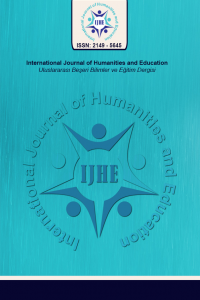Dindarlık ve Depresyon İlişkisi
Kimlik ve anlam sorunları, hayatın en önemli sorunlarının başında gelir. Hepimiz bu dünyada ne olduğumuzu, varlığımızın neye yaradığını bilmek ister, bunları sorgularız. Hayatına bir anlam tayin edememiş kişiler, çoğu zaman ruhsal sıkıntılar yaşar, ilerleyen dönemlerde depresyon, anksiyete veya endişe bozuklukları gibi tablolarla karşılaşabilirler. Din, insanın nasıl ve neden yaratıldığını açıklarken hayatının anlamını bulmasına yardımcı olur. İnsana sorumluluklarını hatırlatarak bu dünyaya boş bir amaç uğruna gönderilmediğinin ve hayatını nasıl anlamlandıracağının bilgisini verir. Dini pratikler, depresyon, kaygı, korku, öfke, aşağılık duygusu, yabancılaşma vb. gibi ruh sağlığını tehdit eden duygular üzerinde hafifletici etkiye sahiptir. Psikoterapi sürecinde, hastanın Tanrı’yla kurduğu içsel temasın, terapist ile kurulan ilişki gibi olumlu bir fonksiyon icra ettiği görülmektedir. Ancak dini bağlanmanın insanın ruh sağlığına olumsuz yönde etkide bulunduğunu öne süren görüşler de bulunmaktadır. Din eğitiminde sıklıkla müracaat edilen korku faktörünün, bu duygu ekseninde bir dindarlığın gelişmesini beraberinde getirerek zamanla bazı psikolojik sorunlara neden olması olasıdır. Taraftarlarından tam ve sorgusuz bir teslimiyet isteyen dini kurum ve liderlerin bunu sağlamak için cezalandırıcı bazı tehdit ve yaptırımları lüzumundan fazla kullanmaları bunun olası sebepleri olarak kabul edilmektedir. Depresyon, statü ya da iyi bir gelecek beklentisiyle birebir ilişkili değildir. Bunun insanın zayıflığından kaynaklandığı, bazen gerçekler ile idealler arasındaki uçurumdan, kimi zaman da toplumsal adaletsizliklerden ortaya çıktığı anlaşılmaktadır. Günümüzde depresyon sadece biyolojik nedenlerle değil aynı zamanda çocukluk dönemindeki yaşantılara bağlı olarak veya sosyal nedenlerle de ortaya çıkabilmektedir.
Anahtar Kelimeler:
Din, dindarlık, depresyon, dindarlığın boyutları
Relationship of Religiosity and Depression
Issues of identity and meaning are the foremost issues of life. Every of us want to learn and question who we are and for what our existence serve in life. People who cannot give meaning to their lives have often mental problems and also they may face depression and anxiety disorders later on in their lives. Religion helps people find the meaning of life while explaining why and how human beings are brought into existence. Reminding their responsibilities, religion enlightens people about the fact that they are not brought into existence in vain and about the way how to add meaning to life. Religious practices have mitigating effects on the emotions such as depression, anxiety, phobia, anger and inferiority complex, which threaten the human psychology. During the psychotherapy period, it is observed that the internal contact that a patient have with the God serves a positive function as in with the psychiatrist. However, there are some views claiming that religious contact influence the mental health negatively. It is possible that the fear factor, to which it is often applied in religious education, may cause some psychological problems later on leading to the development of religiousness within this sense. To ensure this, the religious intuitions’ and leaders’, who demand full and unquestioned resignation, overusing their enforcements and threats, are accepted as possible reasons. Depression is not closely associated with the status or the expectation of a good future. It is understood that it stems from the weakness of the person or sometimes from the gap between the reality and the ideals or from social injustice. In our day, depression does not appear only because of biological reasons; childhood experiences and social reasons can cause depression.
Keywords:
Religion, religiosity, depression, dimensions of religiousness,
- Başlangıç: 2015
- Yayıncı: Halil TURGUT
